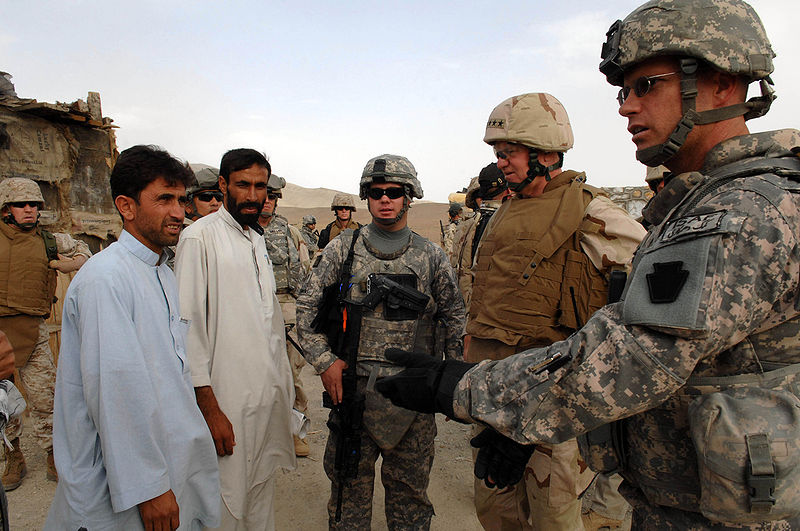Three Follow-Up Links

Adm. Gary Roughead speaks with Afghanistan Provincial Reconstruction Team: Image Credit – U.S. Navy
Below are links to three articles that relate to previous postings here at Global Engagement:
1. My previous post on U.S. students seeking to study full-time in the U.K. has been followed up with an article in the Washington Post, “U.S. students crossing pond for college.”
The population of U.S. undergraduates at United Kingdom schools has spiked 30 percent in five years, to 3,560 in the 2008-09 academic year, the most recent figure available from Britain’s Higher Education Statistics Agency. It’s a trend driven by price, prestige and – in the case of St. Andrews – a prince.
2. US Senator Benjamin Cardin (D-MD) had a piece in The Hill on finding ways to more effectively use the OSCE (full article is here).
In a year that commemorates the 35th anniversary of the Helsinki Accords – the Cold War agreement that forever tied human rights to a holistic view of global security – it is time we do more than merely recommit to our shared values at this week’s 56-nation summit of the Organization of Security and Cooperation in Europe.
The test for this Summit is to prove that the OSCE — long the standard bearer for open societies, open minds, and open economies — is flexible enough to meet modern challenges where security threats are changing and democratic governance is declining.
This Summit, the first in 11 years, can revitalize the organization.
Considering more than 50 investigative journalists have been killed in the OSCE region since the early 1990’s, this Summit should call for prompt and thorough investigations into physical attacks against journalists, vigorous prosecution of all of those responsible for the murder of investigative journalists, and a repeal of criminal defamation laws.
To strengthen the organization’s work on economic and environmental issues, the heads of state should agree on clear language to combat corruption and foster good governance, specifically through commitments to increased transparency and accountability in the extractive industries.
President Obama recently called for deepening our cooperation within OSCE and other multilateral organizations. The United States cannot do it alone. Meaningful progress depends on all governments living up to their international commitments.
I had a previous post on the need to revitalize the US relationship with the OSCE – here.
3. The New York Times ran an interesting article, “Killing of Afghan Relief Workers Stirs Debate.”
Most of the victims worked for aid contractors employed by NATO countries, with fewer victims among traditional nonprofit aid groups. The difference in the body counts of the two groups is at the heart of a question troubling the aid community: Has American counterinsurgency strategy militarized the delivery of aid?
The role of contractors in development is still out of balance, as I discussed here.
